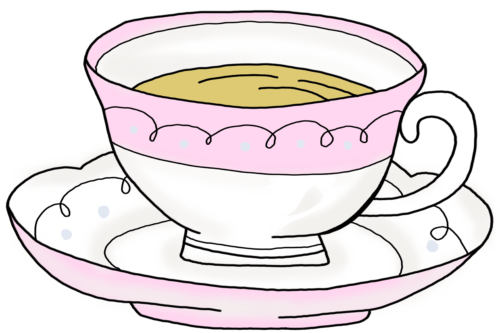We meet for tea every Thursday afternoon at 3:45 p.m.
Today, though, I am 10 minutes early. I sit at a table by the window facing the street. The taxis drive by, pops of yellow among the otherwise muted winery whites and grays of the building facades. The city moves at its usual pace, rushed and chaotic and incapable of slowing down.
I order our tea—chamomile for me, jasmine for her—as I wait. Two kettles, piping hot, arrive at our table. She walks in late, breathless with a frantic apology and complaint that her work call went over. She immediately sits down and pours tea for the both of us. She’s a writer for The Atlantic, deeply engrossed in the world of current affairs and culture.
And so, like every Thursday, we talk. She tells me about the article she’s working on, I tell her about the latest book I’m reading—one by some famous psychologist about how to make better decisions that I’m barely halfway through. We talk about her best friend who is annoying her and the unsuccessful date she went on last night. That reminds her—she wants to write a memoir on love, or so she tells me. I find this ridiculous, but I say nothing.
An hour has passed, and we both ignore the fact that my flight home leaves at seven. The taxi will be at my apartment soon. But instead, I tell her I want to go on a safari someday, to see a leopard and the constellations. She tells me she’ll go with me.
As she complains about the New York pollution, I fixate on the windowsill. Dots of white start to delicately flutter in the sky, sprinkling onto the rooftops. They drift idly in the wind.
She follows my gaze, stopping short in her sentence.
“Look, it’s snowing,” I say, an interruption. We sit in silence for a mere few moments, enchanted by the snowflakes in the December air, the first of the season. The city feels quieter, covered in a fleeting veil of white. But it is a lie, an illusion really. The snow melts as it falls; it collapses onto the ground as tarnished sleet and rain. Do we then only consider it snowing when the snow reaches the ground—when in finality, the snow remains? What constitutes, then, snow falling—the beginning or the end?
“No, it’s not,” she says. Softly, still entranced. Yet, the question is resolved.
I sip my tea. I am unconvinced. I think the falling is enough, that it can exist in its impermanence, but I do not have it in me to argue with her today.
My tea is now lukewarm, but I haven’t finished it, so I stay.
We’ve run out of things to discuss, so we watch the snow as it gradually begins to settle, coating the ground with a thin layer of white on the street the taxis drive over.
I’ll leave tomorrow, I tell myself. It is another lie.
Meena Behringer ’27 (meenabehringer@college.harvard.edu) writes Arts for the Independent.

